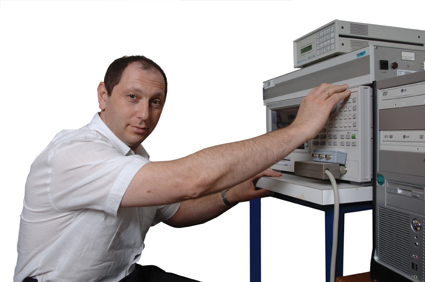Is it possible to freeze water by heating? Weizmann Institute scientists recently discovered that water can turn from a liquid to a solid at different temperatures, depending on the electrical charge of the surface on which it is placed.

Prof. Igor Lubomirsky, research student (then) David Ahara, research student Itai Levert-Opir, and Prof. Meir Lahav from the Department of Materials and Surface Research at the Weizmann Institute of Science, based their experiment on an old hypothesis, which claims that an electric charge is able to encourage freezing by causing For the water molecules to line up in a "back-to-back" row according to their charge. However, researchers have so far struggled to find a good way to test the hypothesis, because most charge-bearing materials - mainly metals - also serve as foci (nuclei) for the production of ice crystals: when water freezes at a temperature of zero degrees Celsius, the ice crystals begin to form around dust particles or impurities others. But water in a "supercooled" state, such as that found in high clouds, may remain in a liquid state even at a temperature much lower than the freezing point, as long as there is no factor that accelerates its formation.
The scientists found a way to solve the problem. They dripped water onto a special surface made of pyroelectric crystals that carry a charge when heated or cooled, but do not act as nuclei to form ice crystals. To their surprise, they discovered that while on a positively charged surface water freezes at a temperature of seven degrees Celsius below zero, and on an uncharged surface at a temperature of 12.5 degrees Celsius below zero, on a negatively charged surface, the water turns to ice only at a much lower temperature: 18 degrees Celsius below zero. Therefore, when the researchers placed water on a negatively charged surface whose temperature is 11 degrees Celsius below zero, and made the charge positive while heating the temperature to eight degrees below zero, the water froze and formed ice (as mentioned, on a positively charged surface the water freezes at a temperature of seven degrees Celsius below zero).

11 תגובות
Well done!... Prof. Lubomirski knows how to choose bizarre studies, but at the same time, interesting projects with implications for the future... see your warning...
I was once taught that water freezes at -0 degrees. What happened, have the laws of physics changed?
All their research was already known 100 years ago. Although back then they still didn't know how to measure and prepare sufficiently clean water.
There is no innovation in this research even though it can solve a number of problems in physics. especially in nanotechnology.
ק:
http://en.wikipedia.org/wiki/Pyroelectric
What exactly are pyroelectric crystals?
Is it possible to freeze water by heating?
No
But this leads to a new discovery for science just as there is absolute zero there is also "not absolute".
Just complicating life... Now we will have to boil water for ice cubes.
The solution to global warming has been found
A worthy candidate for Ignatius?
Genius, but stupid in levels...
And if you increase the electric charge more and more in the positive direction? Is it possible to make water freeze even above zero temperature?
Bizarre research. Surely this thing has many consequences in the basics of chemistry. But the title is misleading, although technically it describes the subject of the article well. Freezing water below zero? A difference of one degree Celsius? Well, that's nice.